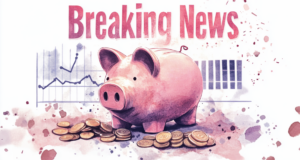Europe Offloads Bank Assets

Over the past year, European governments have sold approximately €16 billion of bank stocks, initially acquired in 2008 to bolster financial institutions during economic crises. Now, these authorities aim to secure profits and symbolically close that chapter.
On this page
Over the past year, European governments have sold approximately €16 billion of bank stocks, initially acquired in 2008 to bolster financial institutions during economic crises. Now, these authorities aim to secure profits and symbolically close that chapter.
However, recouping the full investment appears unlikely. For instance, Greece invested over €50 billion to stabilize its banks but managed to recover only around €3 billion last year by selling stakes in various companies. Despite this shortfall, governments persist in privatizing these institutions.
The experience of holding stakes in banks has taught governments the importance of cutting losses early, as full recovery of investments might not be realistic,
said Filippo Alloatti, head of financials credit at fund manager Federated Hermes.
Interestingly, direct competitors often become the buyers. Italy’s UniCredit, for instance, recently purchased a 4.5% stake in Germany's Commerzbank, increasing its total ownership to 9%. Many major banks see such acquisitions as strategic opportunities for future expansions or takeovers of smaller entities.
Analysts suggest that governments chose an opportune moment for the sale of bank shares. High interest rates are currently yielding substantial profits for financial institutions, and projections indicate that bank stocks could continue to rise, even as central banks begin to cut rates.
The content on The Coinomist is for informational purposes only and should not be interpreted as financial advice. While we strive to provide accurate and up-to-date information, we do not guarantee the accuracy, completeness, or reliability of any content. Neither we accept liability for any errors or omissions in the information provided or for any financial losses incurred as a result of relying on this information. Actions based on this content are at your own risk. Always do your own research and consult a professional. See our Terms, Privacy Policy, and Disclaimers for more details.


























